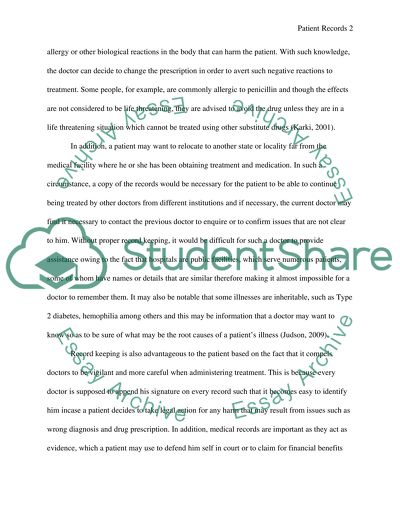Cite this document
(“Describe in detail the importance of keeping accurate, confidential Essay - 1”, n.d.)
Describe in detail the importance of keeping accurate, confidential Essay - 1. Retrieved from https://studentshare.org/health-sciences-medicine/1583418-describe-in-detail-the-importance-of-keeping-accurate-confidential-patient-records
Describe in detail the importance of keeping accurate, confidential Essay - 1. Retrieved from https://studentshare.org/health-sciences-medicine/1583418-describe-in-detail-the-importance-of-keeping-accurate-confidential-patient-records
(Describe in Detail the Importance of Keeping Accurate, Confidential Essay - 1)
Describe in Detail the Importance of Keeping Accurate, Confidential Essay - 1. https://studentshare.org/health-sciences-medicine/1583418-describe-in-detail-the-importance-of-keeping-accurate-confidential-patient-records.
Describe in Detail the Importance of Keeping Accurate, Confidential Essay - 1. https://studentshare.org/health-sciences-medicine/1583418-describe-in-detail-the-importance-of-keeping-accurate-confidential-patient-records.
“Describe in Detail the Importance of Keeping Accurate, Confidential Essay - 1”, n.d. https://studentshare.org/health-sciences-medicine/1583418-describe-in-detail-the-importance-of-keeping-accurate-confidential-patient-records.


